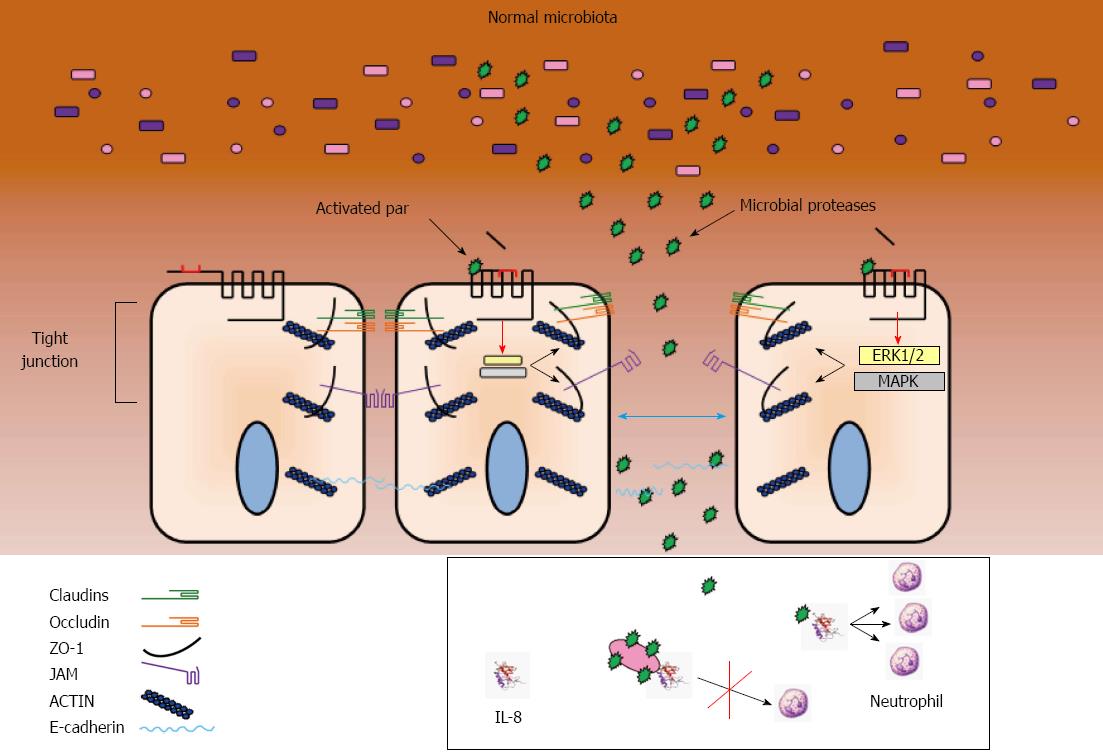Copyright
©2013 Baishideng Publishing Group Co.
World J Gastroenterol. Nov 21, 2013; 19(43): 7531-7543
Published online Nov 21, 2013. doi: 10.3748/wjg.v19.i43.7531
Published online Nov 21, 2013. doi: 10.3748/wjg.v19.i43.7531
Figure 1 Model for enteric microbial protease-dependent increased intestinal permeability.
Enteric microbial proteases activate epithelial protease activated receptors (PARs) through release of the tethered ligand. This results in intra-cellular signal transduction and activation of ERK 1, 2 and MAPK. These signaling molecules mediate disruption of tight junctions and consequently cause increased intestinal permeability that enables penetration of microbes and their proteases which can act upon cytokines. Further possible effects of bacterial proteases on the immune response are illustrated in the black box. These mechanisms have been demonstrated for Porphyromonas gingivalis in the oral cavity (and not in the gut) where gingipain proteases can enhance Interleukin (IL)-8-dependent attraction of neutrophils (when in their soluble forms) by partially degrading the N-terminal of this cytokine, or inhibit neutrophil activity via complete degradation of IL-8 when associated with the microbial membrane.
- Citation: Carroll IM, Maharshak N. Enteric bacterial proteases in inflammatory bowel disease- pathophysiology and clinical implications. World J Gastroenterol 2013; 19(43): 7531-7543
- URL: https://www.wjgnet.com/1007-9327/full/v19/i43/7531.htm
- DOI: https://dx.doi.org/10.3748/wjg.v19.i43.7531









